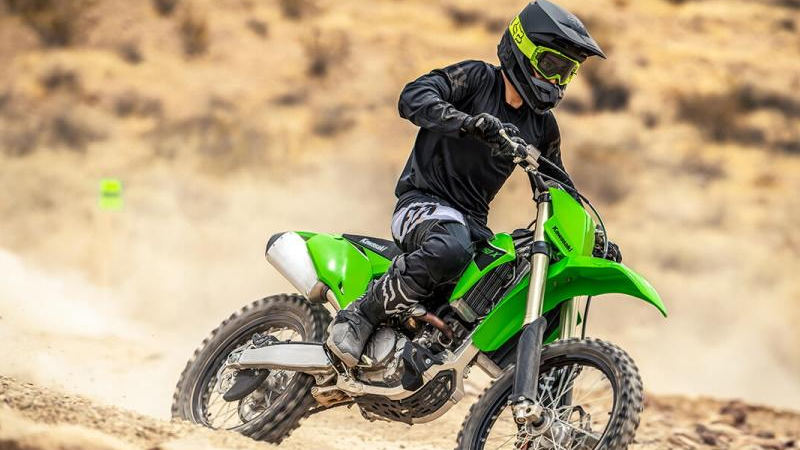Engaging in roading and motorcycle riding can be an exhilarating experience for adventure enthusiasts. However, it’s important to remember that these activities come with risks. Accidents can happen during roading adventures or motorcycle rides, potentially resulting in injuries or legal complications. This article aims to delve into the aspects and rights involved in incidents for both riders and other parties involved.
Navigating Off-Roading Laws
Off-roaders often venture into unknown and unexplored territories, discovering nature’s hidden treasures while enjoying the thrill of adventure. To ensure safety and minimize impact, there are laws that govern off-road riding. A bike wreck lawyer in Bakersfield can help you familiarize yourself with these laws.
Safety Regulations: Practicing “Tread Lightly”
A crucial aspect of off-roading is embracing the philosophy of “Tread Lightly.” This approach encourages riders to have an impact on the surroundings they explore. By adhering to this code of conduct, not only do riders practice safer habits, but they also establish a stronger legal position in case any accidents occur.
Land Access Laws: Understanding Ownership
Before embarking on an off-road adventure, it is vital to grasp the laws concerning land ownership and access. Each jurisdiction has regulations regarding who owns which land and whether it’s open for recreational riding or restricted to specific activities.
Public lands in the United States provide opportunities for off-road enthusiasts to embark on thrilling adventures. However, it’s important to understand the laws that come into play when planning such expeditions. Different agencies like the Bureau of Land Management (BLM), National Park Service (NPS), and the U.S. Forest Service (USFS) manage these lands, and each may have its own specific regulations regarding the use of motorcycles.
In addition to land access laws, it’s also crucial to be aware of the state regulations that govern off-road motorcycling within each state’s boundaries. It is advisable for riders to consult with the state department for managing public lands or local resource agencies in order to fully grasp these rules and guidelines.
It’s also worth noting that apart from lands, non-federal public lands such as State Trust lands also require permits for access. These permits may come with restrictions, liability provisions, and a need for compliance with state riding laws. Being well-informed about these regulations is a necessary approach.
Like any vehicle operator on the road, off-road motorcyclists must prioritize safety during their adventures. Practicing safe driving techniques and adhering to speed limits are important elements of ensuring personal safety as well as the safety of others while enjoying off-road excursions.
Assessing Risks: Making Informed Choices
Before embarking on an off-road adventure, riders should carefully evaluate the risks that come with their chosen route. This involves considering the level of difficulty of the terrain, taking into account weather conditions, and assessing the riding experience of both themselves and their group members.
Protective Gear: Preserving Lives
Wearing gear can significantly reduce injuries in the event of an accident. Essential equipment such as off-road bike helmets, gloves, jackets with padding, ankle-supporting boots, and goggles or face shields play a role in safeguarding riders.
Motorcycle Insurance: A Legal Responsibility
The significance of motorcycle insurance cannot be underestimated when engaging in off-road activities. Whether it’s a dirt bike or an All Terrain Vehicle (ATV), having insurance coverage helps protect a rider’s well-being should accidents occur.
Legal Aspects Concerning Motorcycle Accidents
Unfortunately, accidents may still happen despite all the necessary measures being taken by riders. When involved in a motorcycle accident (whether on or off-road), understanding one’s rights and responsibilities becomes crucial.
Determining Liability: Establishing Fault
Determining liability for motorcycle accidents often entails identifying which party acted negligently or unlawfully, leading to the collision. Collecting evidence at the accident scene becomes pivotal when seeking compensation from those responsible for negligence.
Automobile Insurance Policies: Can They Provide Assistance?
In some cases, motorcycles used for off-roading might be covered by insurance policies designed for automobiles. These policies could offer protection in the event of accidents depending on the terms and conditions.
Personal Injury Claims: Seeking Compensation
If someone gets injured in a motorcycle accident due to someone’s negligence, they have the option to pursue a personal injury claim. Seeking advice from an attorney who specializes in personal injury law can provide guidance throughout the claims process.
Conclusion
Off-roading and motorcycle riding present thrilling opportunities for adventure enthusiasts. While enjoying these experiences, it is crucial for riders to prioritize safety by adhering to regulations and utilizing safety measures such as riding gear and sufficient insurance coverage. It becomes essential to familiarize oneself with the associated laws and understand one’s rights in case of an accident. By following the laws, embracing safety measures, and being aware of their rights, riders can confidently pursue their passions, knowing they are well-informed and prepared for any unexpected circumstances.







